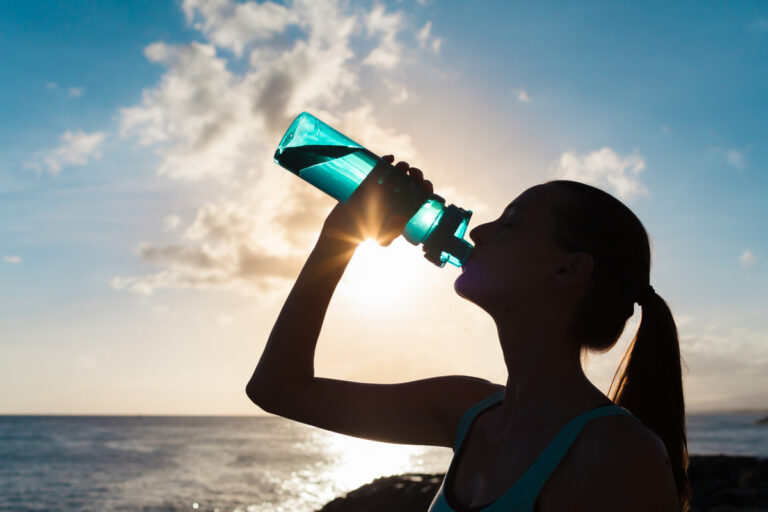Hydration is not simply just sipping water to relieve the dryness of our throat, lips, and tongue. It allows your body to perform nearly every function: it regulates your body heat, delivers nutrients to cells, provides the energy for daily activities and sometu marginBottom: 0in e. Proper hydration should give you a boost in your physical performance, sharpen the clarity of your mind and brighten your mood. In other words, it is one of the easiest and most effective ways to help support overall health and energy levels.
Understanding Daily Hydration Needs
It is problematic, but knowing how much water you need daily will depend on many personal factors. These two points provide you with a general idea about knowing your unique hydration requirements in avoiding overhydration.
Check Out:
Why Mental Health Matters in Today’s Workplace Environment
Factors That Affect Your Hydration Requirements:
Various determining factors about how much water the human body requires are age, weight, activity level, climate, and diet. For instance, for a person to have more fluids, they should be located in a warm climate or involved in vigorous exercise. On the other hand, those who have low levels of activity or those living in cold locations will need fewer fluids.
Common Signs of Dehydration to Look Out For
Actually, dehydration can occur unbelievably and you may not notice it. Symptoms tend to be quite subtle. On the watch for dry mouth, headache, fatigue, dizziness, or urine whose color is darker than usual. Having early warning signs can lead to action before these could progress into decreased energy or concentration.
How to Stay Hydrated Naturally Day to Day
You don’t necessarily need to drink big gulps of water all the time, stay hydrated. Learn how to fit hydration practices into your day and meet more natural hydration goals.
Drinking Water Habitually
The simplest habit to maintain hydration is to get into the habit of drinking water. A common recommendation is eight 8-ounce glasses a day, or approximately two liters. Allow your body to dictate more if you are more active or in a warmer climate.
Hydration-Rich Food Habits
Gradually introduce hydration-rich foods into your diet through eating fruits and vegetables. Start by observing how much you already consume then slowly add up to the recommended amount.
Hydration is not only restricted to water and drinks.There are many foods that are either composed of water or are a route by which the body can obtain water. Some of these products include watermelon, cucumber, oranges, strawberries among others. Such foods are purely water beach with nutrients in offering a general hydration.
Use Electrolyte-Rich Drinks in Employment
Some examples of electrolytes include sodium, potassium and magnesium which have a very big impact on water balance in your body. Apart from water, when you sweat you also lose certain minerals known as electrolytes. Drinking a drink rich in electrolytes can refill several essential minerals in you; sometimes, it is rather more than only water if you have been working out intensely or been exposed for a long time to hot sun.
Hydration Tips for Active Lifestyles
Indeed, the more active you are, the more you need hydration. This is because the body needs to be supported before, in, and after exercising to retain its energy and avoid dehydration.
Pre-Workout and Post-Workout Hydration
Drink at least 16–20 ounces of water an hour or so before exercise so you’ll be good and hydrated to start with. Post-exercise, drink water or an electrolyte drink to replace what was lost during the exercise, especially if it was high intensity or very warm and you got all sweaty-you want to rehydrate to help your muscles feel better and prevent fatigue.
Hydration During Activity
Take water, small sips during each exercise. For those sports that take one hour and above consider taking a sport’s drink that has nutrients called electrolytes which are released from sweating. This also helps in sustaining our energy source and avoiding getting so dehydrated.
How Hydration Increases Mental Acuity and Mood
The brain needs enough water for it to work properly. Drinking enough water will help your mind to be sharper and your mood to be better, so you stay more on track.
Prevention of Fatigue and Brain Fog
The main underlying cause of poor focus and tiredness is lack of water. In situations when the body is dehydrated it cannot perform the functions the way it is supposed to do. Drink plenty of water to maintain clear mindedness and reduce the incidences of slow thinking or confusion all through the day.
Boosting Energy and Focus
Hydration promotes freshness and alertness, accompanied by an increase in motivation. Dehydration at even mild levels can also affect mood and concentration. Most people report feeling irritable and having trouble concentrating. Drinking just a few more glasses of water improves mood and keeps things on track.
Easy Hydration Tricks to Tackle a Busy Lifestyle
At times, a jam-packed schedule may make hydration a particularly challenging task. Now, here are some tips that can easily help with hitting that everyday hydration goal.
Hydration Reminders
Individuals at times may forget to drink water. In such cases, people have the option to set reminders from the phone or install a hydration-tracking application. With these reminders, the individual can take sips throughout the day without being overwhelmed by too much water at once.
Using Reusable Water Bottles
Perhaps the easiest method of being hydrated on-the-go is a simple water bottle. Choose a reusable one with measurement markings to track how much liquid you’re consuming. A carry-anywhere refillable bottle will be at your side wherever you go.


